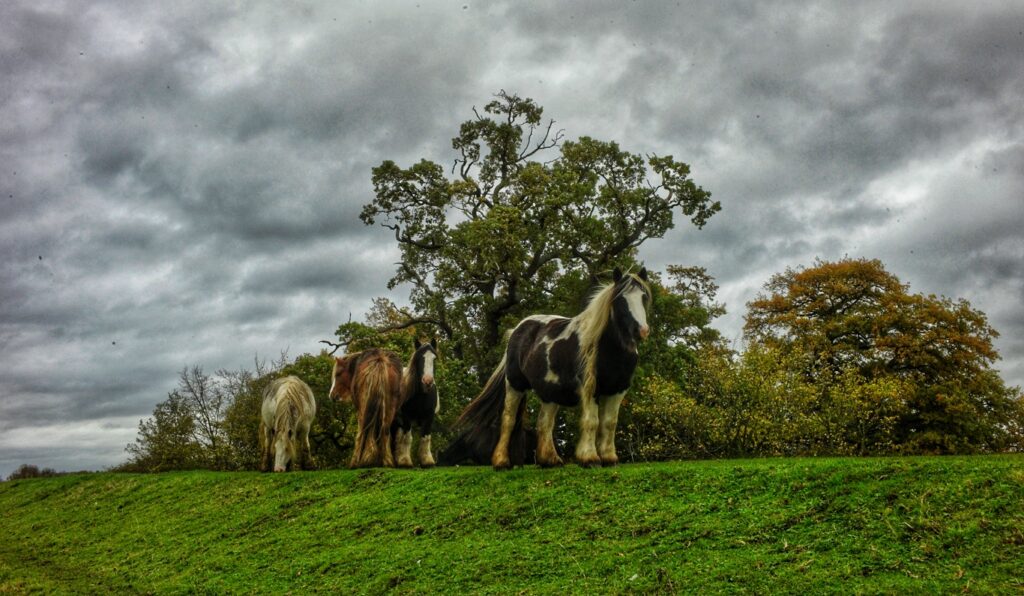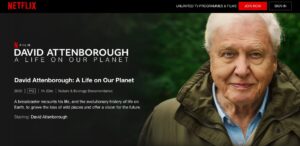From our fen walk yesterday. Slightly over-cooked in post-processing, seeking a ‘Constable’ effect.
Quote of the Day
”Many of the greatest men who have ever lived have written biography. Boswell was one of the smallest men that ever lived and he has beaten them all.”
- Thomas Babington Macaulay, writing about Boswell’s Life of Johnson
Musical alternative to the morning’s radio news
Salieri : Piano Concerto in C major : II Larghetto
Poor Salieri has had a bad press ever since Peter Shafer’s play Amadeus (and Milos Forman’s subsequent film).
Attenborough’s testament
Last night we watched A Life On Our Planet and loved it. It’s quite moving, also, because it’s difficult not to think of it also as a kind of last will and testament. At any rate, he describes it at the outset as his ‘Witness Statement’.
The ingenuity of starting and ending with a visit to Chernobyl was very striking. In the opening sequence he portrayed it as a human mistake that made a whole locality uninhabitable. On a global level, we are embarked on a colossal mistake that will make our planet uninhabitable. And then at the end, he returned to Chernobyl to show how nature is reclaiming the place for itself, with mature trees growing round — and in some cases in — the abandoned buildings. The subliminal message was clear. The planet doesn’t need us. And it will survive us.
En passant I fell to thinking that Attenborough has become one of the most loved man in Britain and maybe in much of the West — a kind of international treasure. The only comparison I can think of at the moment is with the late Nelson Mandela.
Long read of the Day
Absolutely fascinating article by Karen Hao on how AI (well, machine-learning, actually) has cracked a key mathematical puzzle for understanding our world.
Perhaps it wasn’t for everyone but it was certainly fascinating for anyone (like me, anyway) who, once upon a time, had to grapple with partial differential equations (PDEs) — the mathematical constructs which offer powerful ways of realistically modelling important real-world phenomena (like air turbulence), but which are VERY difficult to solve using traditional methods.
So even if the article isn’t for everyone, it’s still a brilliant example of how to make arcane concepts intelligible to lay readers.
My only complaint is that the headline over the piece makes the usual mistake of conflating ‘Artificial Intelligence’ with machine-learning.
Positively the only thing today about the US election
A useful primer on US Election Law. Includes this interesting passage about the responsibilities of TV networks — whose too-early call of the 2000 election led to the subsequent chaos and the Supreme Court eventually handing the presidency to George W. Bush:
On Election Night, what we hear on the news are projections that the media is making about who will win, based upon evolving vote tallies and exit polls. When these projections give one candidate a majority in the Electoral College, media organizations call the election, and the other candidate may even publicly concede. But none of that is official.
Indeed, the “tradition” of knowing who wins on Election Night is a modern invention and a product of network television. It makes for a dramatic evening. George Washington waited two months to find out whether he had, in fact, been elected the nation’s first president. Thus, Trump’s idea that we must know the winner on election night is not grounded in law or history. And even the projections have not led to the declaration of a winner on Election Day in three of the last five presidential elections—in 2000, 2004, and 2016.
But the thing upending everything this year is COVID. Largely due to safety concerns, more people are voting early and/or remotely than in any prior election in American history, at the same time as we are experiencing unprecedented delays in mail delivery. This causes two different sets of complications: First, because of variances in when and how states count votes, early results on election night could easily be subject to what some have described as red or blue “mirages”—where the totals from particular states are quite skewed based upon whether the early reports are from particular counties, early voting, or some inscrutable combination of both. Second, it also means states will be receiving a far higher number of mail-in ballots than they are used to—many of which could well arrive after deadlines established by the legislature even if they are sent early enough so that, if it weren’t for this year’s postal delays, they would be arriving on time. None of that will matter, of course, if the winner’s margins are sufficiently large based upon undisputed ballots so that disputed ballots wouldn’t tip the scales. But if it’s a slim margin of victory, that’s where there’s the most potential for trouble—and for post-election litigation.
The moral: this could be a good time to be a lawyer in the US who specialises in electoral law. On the other hand, if Biden wins big…
Other, possibly interesting, links
-
How Bertrand Russell Turned The Beatles Against the Vietnam War. Link.
-
New Zealand struggles with plague of peacocks. Link. One of my favourite New Yorker cartoons shows a peacock in all his finery confronted by a sceptical pea-hen. “What do you mean, no?” he is saying incredulously.
-
Texas Voters Line Up To Shoot Ballots At Local Election Range. “Texas voters lined up to begin shooting their 2020 ballots at local election ranges, sources confirmed Thursday. “It’s always nice to stare down the ol’ iron sights and make your voice heard by leaving a bullet hole on your favorite politicians,” said Cal Humphries, 54, who shouldered an AR-15 and fired multiple rounds into a sheet of paper that hung from a target retrieval system to indicate his choice in a series of down-ballot judicial races. “Being able to hit a bull’s-eye on your Senate pick is a hallowed right that our ancestors fought and died for. Just make sure you’re using the right caliber bullet, though, or your vote may be disqualified.” Link
This blog is also available as a daily email. If you think this might suit you better, why not subscribe? One email a day, delivered to your inbox at 7am UK time. It’s free, and there’s a one-click unsubscribe if you decide that your inbox is full enough already!


